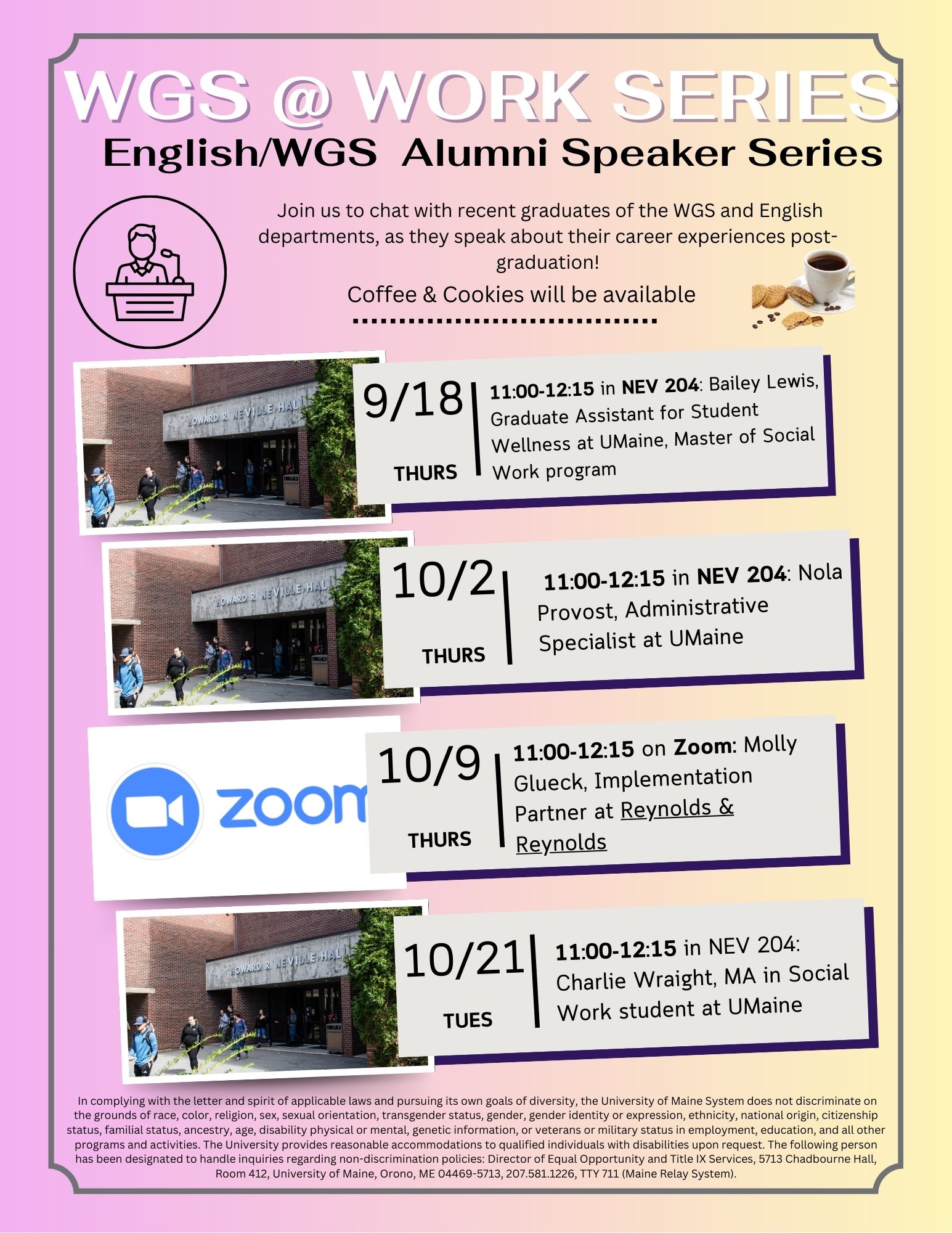Women’s, Gender, & Sexuality Studies
Women’s, Gender and Sexuality Studies program can uniquely qualify you for any career by providing perspectives and critical frameworks for analysis that will enhance your experience in any other major or minor.
Women’s, Gender, & Sexuality Studies
Contact
Williams Hall, Room 204
Orono, ME 04469
P
207.581.3439
About
Women’s, Gender, and Sexuality Studies (WGS) is the axis for interdisciplinary methods and inquiry in the university and beyond. WGS includes content but it is also an intellectual framework and a set of perspectives that can be applied to any discipline, from the Humanities and arts to the sciences and health-related fields. At the University of Maine, WGS students and faculty work together to explore and grapple with nuanced questions and multifaceted responses. Our courses cover a tapestry of topics, including community activism, history, literature, data science, film, culture, healthcare, and more. Through our department partnership initiative, we also have a growing cohort of faculty affiliates who teach WGS electives in courses as wide-ranging as (but not limited to) Anthropology, Animal and Vet Sciences, Biology, English, Nursing, Psychology, Sociology, and Social Work.

Major
Our major has long served as a stand-alone program. Since our Department Partnership Initiative of 2022, we have also become an increasingly popular double major, and with students now representing fields across the university–and across the alphabet )e.g. Anthropology to Zoology!) and everything in between (e.g. English; History; Mathematics and Statistics; Psychology; Philosophy; Sociology; Social Work). Our major provides a robust critical framework for analysis. To help enable those students who hope to double major, we aim for flexibility whenever possible. For example, due to our growing list of WGS affiliates across the university, many students benefit from electives that count twice–once for WGS and twice for another major and minor. The WGS major is 33 credits and includes six required courses and five electives. The program culminates with a capstone experience that includes two courses (one an internship experience and the other a course in feminist and gender theory). This dual experience draws students into further experiencing WGS’s potential for both activist work and also for critical analysis.
Minor
Our minor is 18 credits and includes WGS 101 and also any additional two WGSe courses, along with any three electives. Our minors often have never considered a WGS minor until experiencing WGS 101. Students frequently comment on their surprise at how broad-ranging the course was – and how relevant it is for everyone. Indeed, WGS 101 often serves as a gateway to the minor. To date, our minors include students across three colleges (Liberal Arts and Sciences; Earth, Life and Health Sciences; Education and Human Development). The minor is particularly well suited for those students whose majors leave little room for additional coursework outside of General Education Requirements. A great example of how our Department Partnerships work to help make a WGS minor possible is our growing cohort of Nursing majors. Three required courses in the School of Nursing now count as WGS electives, due to their content and focus. Since we began this partnership in fall 2022, over two dozen Nursing majors have graduated with or currently currently working towards a WGS minor.
Program Highlights
History










